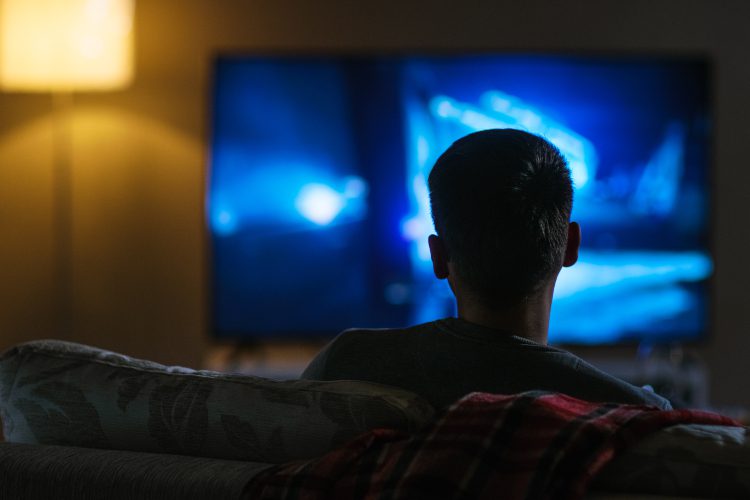
The worldwide pandemic caused many of us to watch more television than ever before. With that in mind, it’s time to start changing our television watching habits to keep us mentally and physically fit. Here’s how not to watch TV, according to those who know about healthy habits best…
Without Moving

Of course, we all know the term “couch potato.” Well, as the name implies, the habit of not moving while watching television is not too great for your health. And it’s not just about gaining weight, either! Most recently, one 2019 study revealed that watching TV in a sitting position for two or more hours without moving results in a 70% increased risk of developing colorectal cancer at a young age!
“Being active can help improve your hormone levels and the way your immune system works,” stated the American Cancer Society. So, not only should you take a standing and stretching break every hour or so, but every week adults should get at least 150 minutes of moderate exercise. If you love intense exercise, 75 minutes a week should be enough.
But sitting too long is just one way we watch television wrong…
Blue Light Reduction

While our grandmothers weren’t exactly right that bright screens would make us go blind, screens are certainly not great for our health. Exposure to the blue light produced from screens, both television and computers, can disrupt the health of your eyes and skin. In short, it makes people age faster. A study published in the journal Aging and Mechanisms of Disease in 2019 found that too much blue light exposure can damage cells in the brain and eyes.
How can you prevent this? Well, there are a few things you can do! Spend some time in the sunlight, not in front of artificial light, every day. Also, wear blue-light glasses and don’t watch too much TV after working all day.
While Eating

Eating in front of the television, better known as “distracted eating,” can build some terrible habits. And it’s not just eating in front of the television – it’s also eating in front of the computer or while using your phone! You see, human brains simply stop notice how much we’re eating when we’re not focused on the task at hand.
“If you aren’t mindful of what’s going into your mouth, you don’t process that information,” said Harvard Medical School. “That means it doesn’t get stored in your memory bank. And without a memory of having eaten, you are more likely to eat again sooner than you might have if you ate mindfully.”
Right Before Bed Or Instead Of Sleeping

Who doesn’t love a late-night snack? Well, it turns out that late-night snacks are not exactly great for your sleep schedule – and neither is watching television to fall asleep! Both snacks and blue light deeply affect the production of the sleep hormone melatonin, according to the Proceedings of the National Academy of Sciences research. To combat this, the National Sleep Foundation recommends no television, smartphones, or computers for 30 minutes before bed. Instead, enjoy a cup of lavender tea and a book, or listen to calming music.
Following these tips will help you remain healthy while you watch television.
Sources: Huffington Post, MSN
